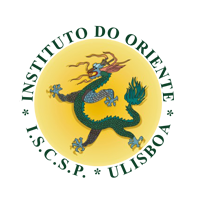CRISEA: Competing Regional Integrations in Southeast Asia

Start and end of the project
2017 - ongoing
Principal Investigator for the portuguese research team
Professor Paulo Seixas
International Coordinators
Yves Goudineau
Jacques Leider
Portuguese research team
| Researcher |
Institutional Afilliation |
| Paulo Seixas | CAPP/ISCSP |
| Nuno Canas Mendes | IO/ISCSP |
| Andreia Valente | IO/ISCSP |
Partners
| Ecole Francaise D'Extreme-Orient | France |
| Universitaet Hamburg | Germany |
| Universitá degli Studi di Napoli L'Orientale | Italy |
| Uniwesytet Lodzki | Poland |
| Universitetet I Oslo | Norway |
| University of Cambridge | United Kingdom |
| Chang Mai University | Thailand |
| Centre for Strategic and International Studies | Indonesia |
| Ateneo de Manila University | Philippines |
| University of Malaya | Malaysia |
| Vien Khoa Hoc Xa Hoi Viet Nam | Viet Nam |
| Department of International Relations, Mandalay University | Myanmar |
Summary
Competing Regional Integrations in Southeast Asia (CRISEA) is an interdisciplinary research project funded by the European Union's Horizon 2020 Framework Programme that studies multiple forces affecting regional integration in Southeast Asia and the challenges they present to the peoples of Southeast Asia and its regional institutional framework, ASEAN.
The project brings together Southeast Asian (SEA) and European researchers with 3 objectives.
1. Research. Our previous research shows that SEA is open to multiple forces that drive regional integration through competition for resources and legitimacy. In the current crisis of legitimacy for globalisation, SEA's competing regional integrations present challenges for its people and for ASEAN's framework-building project. We analyse these in sectorallythemed work packages on 'arenas of competition': the environment, the economy, the State, the identity of SEA's people, and the Region. Using an interdisciplinary micro-macro method of analysis, we ask in each case how ASEAN-led regional integration is – and is seen by SEA's people as – part of the problem or part of the solution. CRISEA engages with the work programme's concern with "what ‘region’ means to the peoples of these countries within and beyond the ASEAN context". Closely aligned with the 2015 Joint Communication on EU-ASEAN relations, it enhances the EU's understanding of "the Asia-Pacific as a strategic region for Europe".
2. Policy relevance. CRISEA's research programme was developed for its relevance to EU policy on ASEAN and its member states. Its dissemination strategy innovates by creating mechanisms for dialogue with a targeted audience of policy makers, stakeholders and the public in Brussels and SEA, using briefing sessions, workshops, press coverage, film, public lectures and policy briefs.
3. Networking and capacity building for the European Research Area. Leveraging existing networks of EU-SEA cooperation – the unique EFEO network of 10 field centres in SEA, the IDEAS and SEATIDE projects, EUROSEAS, ASEF – we reinforce the ERA through coordinated academic exchange, joint research and results delivery. Our consortium engages western European and ASEAN scholars with emerging expertise in southern and eastern Europe.
 |
 |

